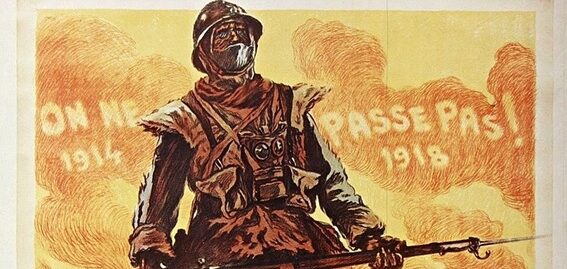According to the Politics Dictionary, the concept of a coup d'état has evolved over time. In monarchies, it was when a sovereign took action to reinforce his power, usually by surprise, to avoid reactions. Today, it represents government changes made in violation of the State's legal Constitution, by those who hold political power.
ADVERTISING
According to the definition of the Larousse Dictionary, it is “a deliberate violation of constitutional forms by a government, an assembly or a group of people holding authority”.
Origin of the term
The expression coup d'état was coined by Gabriel Naudé in the book Political considerations on coups d'état (in the literal translation from French), published in 1639. He explains coup d'état as being the “bold and extraordinary actions that princes find themselves obliged to to be carried out in the event of difficult undertakings, bordering on despair, against common law, and without observing any order or form of justice, putting at risk the interest of individuals in the general good”.
As an example, he cites the St. Bartholomew's Night Massacre, which took place in Paris on August 24, 1572, when the queen of France, Catherine de' Medici, ordered the massacre of thousands of Huguenot Protestants to reestablish control over the kingdom.
ADVERTISING
After the French Revolution, the concept became popular and the term revolution began to be used only for changes brought about by intense popular participation, by society or by the masses. And the expression coup d'état means the seizure of power or alteration of constitutional rules by exceptional means, by force, generally with military support or security forces.
How it happens
A coup d'état usually happens when a political group rejects the institutional paths to reach power and resorts to methods of coercion, coercion, blackmail, pressure or even direct use of violence to dislodge a government.


Images: Flickr
In the most common model, rebel forces (civilian or military) surround or storm the seat of government, which can be a presidential or royal palace, the ministry building or parliament, sometimes expelling, arresting or even executing the officials. members of the deposed government.
ADVERTISING
Military coup
From the 1960s onwards, there was a profusion of coups d'état with the participation of military leaders in Latin America. Several countries on the continent, such as Brazil, Paraguay, Uruguay, Argentina, Chile, Peru, Bolivia, Guatemala, Dominican Republic, among others, had conservative dictatorships led mostly by the military, supported by the United States, who feared seeing these countries influenced by the Cuban revolution of 1959.


Scams in Brazil
With these definitions in mind, it is possible to say that Brazil, since Independence, on September 7, 1822, has undergone several coup attempts and some were successful. According to a survey by Aventuras da História magazine, the country went through 9 coups.
1823 – The first coup in the history of Brazil occurred in the early hours of November 12th, the Night of Agony. D. Pedro I, with military assistance, ordered the invasion of the building of the Brazilian General Constituent Assembly. Many deputies were arrested and then exiled.
ADVERTISING
1840 – The Majority Coup occurred on July 23, 1840, when D. Pedro II became emperor of Brazil, bypassing the Constitution, amid disputes between liberals and conservatives.
1889 – The unconstitutional act of November 15, 1889 put an end to the monarchical period in Brazil. Dissatisfied with the government of D. Pedro II, leaders of the republican movement convinced military leader Marshal Deodoro da Fonseca to gather the army and proclaim the Republic.
1891 – Under strong pressure from the opposition, then president Deodoro da Fonseca, whose vice-president was Floriano Peixoto, dissolved the National Congress and declared a state of siege in Brazil. The army surrounded the Chamber and the Senate and arrested opposition politicians.
ADVERTISING
1891 – Twenty days after the declaration of a State of Siege, Deodoro da Fonseca resigned as president after a bombing by the Brazilian navy in the city of Rio de Janeiro. The episode became known as the First Armada Revolt. Floriano Peixoto took power despite the Constitution providing for new presidential elections.

1930 – With a civil-military character, the Revolution of 30 focused on taking power in the states of Paraíba, Rio Grande do Sul and Minas Gerais. That year, the presidential elections were rigged and resulted in the overthrow of President Washington Luís. This fact put an end to the Old Republic.
1937 – After being indirectly elected, Getúlio Vargas suffered from the opposition. Captain Olímpio Mourão Filho created the Cohen Plan, which would be a supposed communist threat, to guarantee the coup. On September 30, 1937, the National Congress approved the State of War, which suspended constitutional rights and allowed Vargas to remain in power.
1945 – In general, the military that supported the 1947 coup were the same ones that overthrew Vargas in 1945. The coup happened after the president removed João Alberto Lins de Barros and put his brother Benjamin Vargas in his place. This act generated outrage among General Góis Monteiro, who mobilized troops in the Federal District. To avoid a civil war, Dutra proposed that Vargas sign his resignation.
1964 – The most emblematic coup in Brazilian history occurred in 1964 and began the leaden years. President João Goulart was deposed by the military with the help of the United States. Through Institutional Act No. 1, the military chose a new president for Congress, configuring a rupture in the institutional order. The decree of Institutional Act No. 5 in 1968 began the darkest period of the dictatorship, which only ended in 1985, with the indirect election for president, in which the military candidate Paulo Maluf was defeated by Tancredo Neves from the opposition. With his death, his deputy José Sarney takes office and reestablishes democracy.


Resistance to blows: “They won’t pass!”
The expression “They will not pass!”; “No pasarán!”, “Ils ne passeront pas”; “They shall not pass” has become a common slogan in demonstrations in different countries to defend their position in the face of a threat and is commonly used by defenders of democracy.
It would have been coined during the Battle of Verdun, in the First World War, by French general Robert Nivelle, but some attribute it to its commander Philippe Pétain. It later appeared on propaganda posters, such as by Maurice Neumont after the Second Battle of the Marne, with the form “On ne passe pas!”, which would be the form adopted on the uniform plates of the Maginot Line.
Durante a Guerra Civil Espanhola (1936–39), foi usado na Batalha de Madrid na versão castelhana “¡No pasarán!” por Dolores Ibárruri Gómez, La Pasionaria, uma das fundadoras do Partido Comunista da Espanha. O lema de resposta da direita, “Passamos!” foi cunhado pelo general Francisco Franco quando suas forças entraram em Madrid, e a cantora Celia Gámez interpretou “Ya hemos pasao” (em português, “Já passamos»), ironizando o lado vencido.
Curto Curatorship
What is a coup d'état? (Brazil School)



